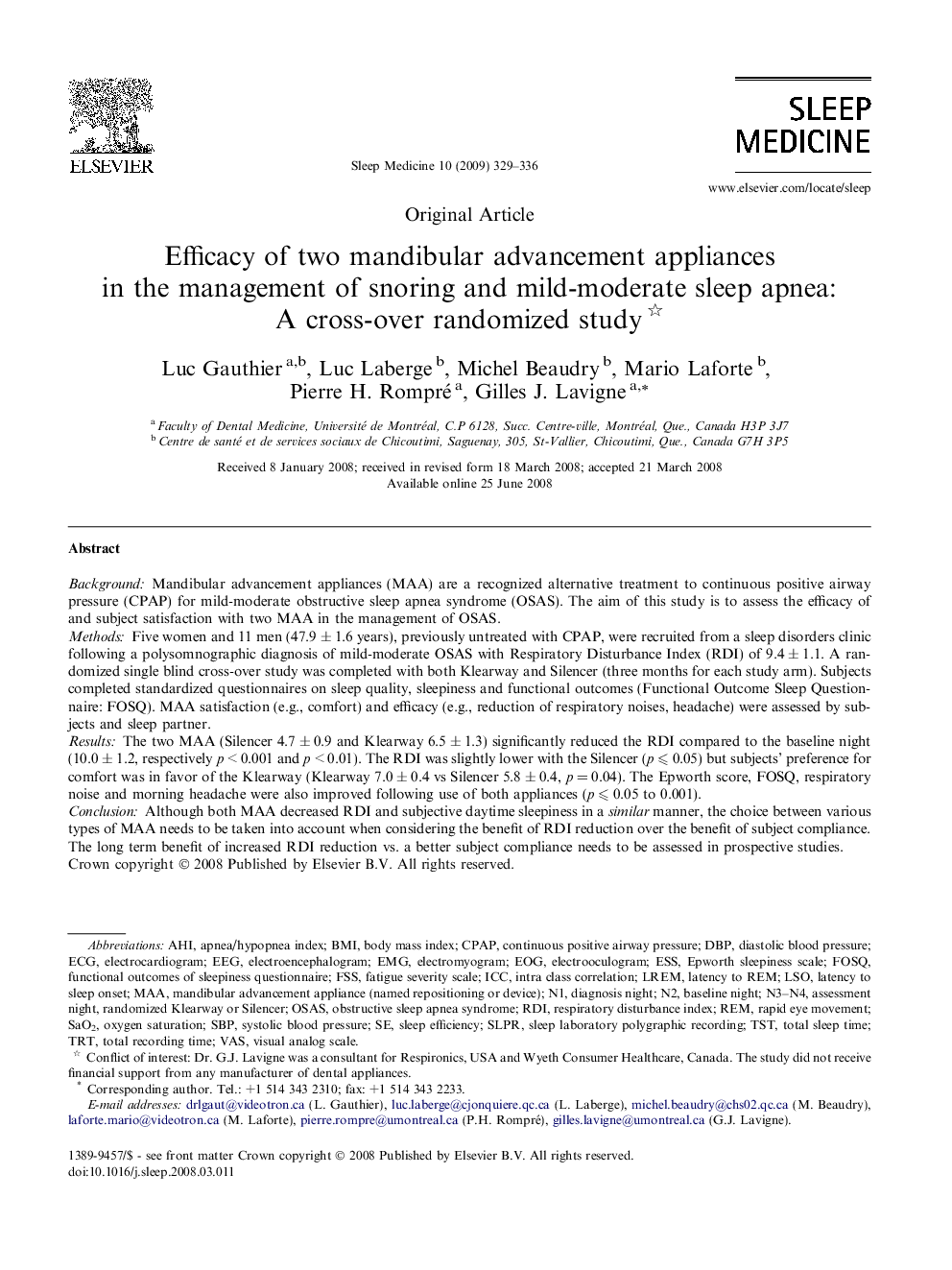| Article ID | Journal | Published Year | Pages | File Type |
|---|---|---|---|---|
| 3177707 | Sleep Medicine | 2009 | 8 Pages |
BackgroundMandibular advancement appliances (MAA) are a recognized alternative treatment to continuous positive airway pressure (CPAP) for mild-moderate obstructive sleep apnea syndrome (OSAS). The aim of this study is to assess the efficacy of and subject satisfaction with two MAA in the management of OSAS.MethodsFive women and 11 men (47.9 ± 1.6 years), previously untreated with CPAP, were recruited from a sleep disorders clinic following a polysomnographic diagnosis of mild-moderate OSAS with Respiratory Disturbance Index (RDI) of 9.4 ± 1.1. A randomized single blind cross-over study was completed with both Klearway and Silencer (three months for each study arm). Subjects completed standardized questionnaires on sleep quality, sleepiness and functional outcomes (Functional Outcome Sleep Questionnaire: FOSQ). MAA satisfaction (e.g., comfort) and efficacy (e.g., reduction of respiratory noises, headache) were assessed by subjects and sleep partner.ResultsThe two MAA (Silencer 4.7 ± 0.9 and Klearway 6.5 ± 1.3) significantly reduced the RDI compared to the baseline night (10.0 ± 1.2, respectively p < 0.001 and p < 0.01). The RDI was slightly lower with the Silencer (p ⩽ 0.05) but subjects’ preference for comfort was in favor of the Klearway (Klearway 7.0 ± 0.4 vs Silencer 5.8 ± 0.4, p = 0.04). The Epworth score, FOSQ, respiratory noise and morning headache were also improved following use of both appliances (p ⩽ 0.05 to 0.001).ConclusionAlthough both MAA decreased RDI and subjective daytime sleepiness in a similar manner, the choice between various types of MAA needs to be taken into account when considering the benefit of RDI reduction over the benefit of subject compliance. The long term benefit of increased RDI reduction vs. a better subject compliance needs to be assessed in prospective studies.
